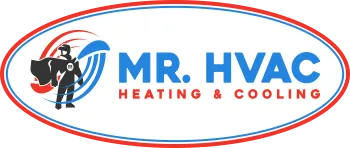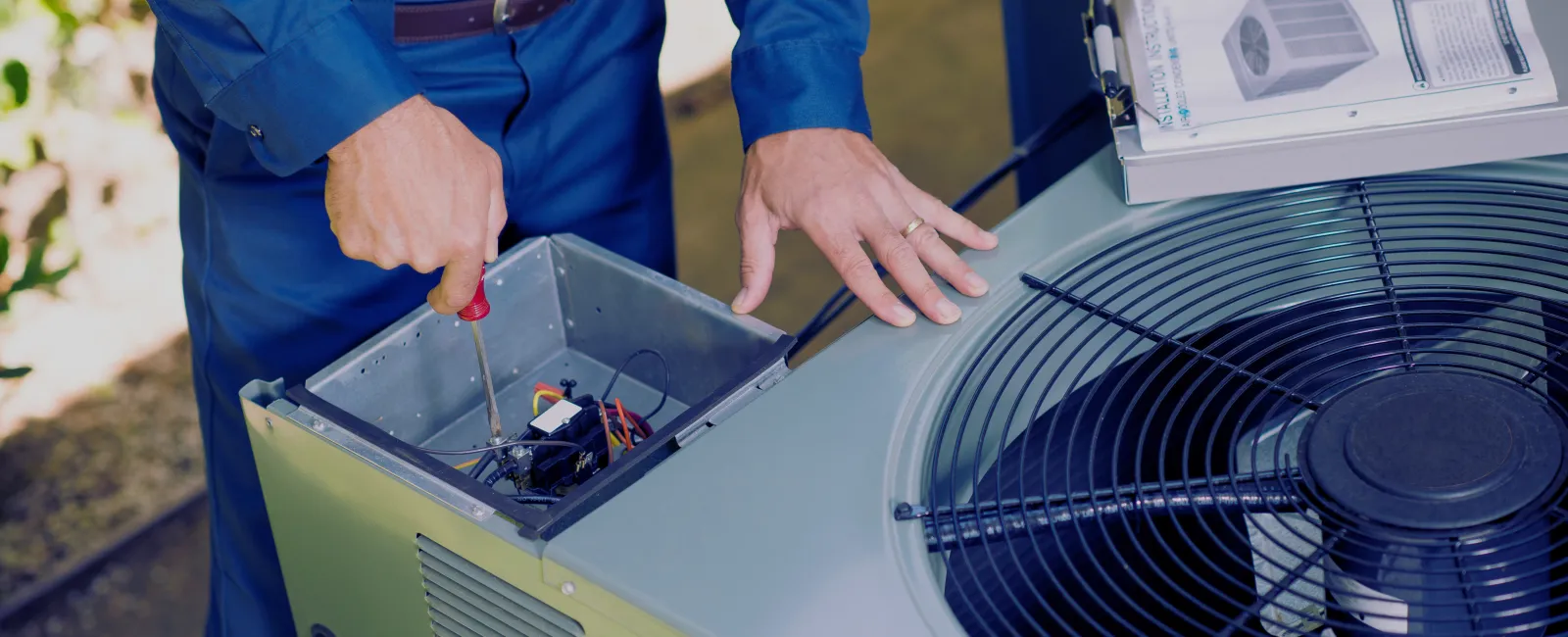July 08, 2025
Your air conditioner may not turn on due to thermostat issues, a tripped circuit breaker, a clogged air filter, a blown capacitor, or faulty wiring. Other causes include a full drain pan, dirty condenser coils, or a failed compressor. Start by checking the thermostat settings, replacing the air filter, and inspecting the breaker panel. If these don't solve the problem, call a professional like MR. HVAC to diagnose and repair the issue.
Most Common Reasons Your AC Won't Turn On
When your AC unit isn't working, the first step is understanding what might be causing the problem. Some issues are simple and can be resolved without a technician. Others may require expert help.
Thermostat Issues
One of the most overlooked reasons your AC stopped working is the thermostat. Before assuming the worst, check that your thermostat is on, set to "cool," and the temperature is lower than the current room temperature. If it's battery-operated, try changing the batteries. Sometimes, the fix is that simple.
Tripped Circuit Breaker or Blown Fuse
If your AC unit won't turn on, check your breaker panel. A tripped breaker or blown fuse can easily cut power to the system. Resetting a tripped breaker may restore power, but if the breaker continues to trip, you may have a more serious electrical issue that requires professional attention.
Clogged Air Filter
Believe it or not, a dirty air filter can cause your AC to shut down. When the filter is clogged, it restricts airflow and can lead to overheating. This may trigger a safety switch that shuts the system down. Replacing your filter regularly is a simple way to avoid this issue and keep your air conditioner working efficiently.
Blown Capacitor or Contactor Failure
The capacitor is a small but crucial part that helps start the AC motor. When it fails, your air conditioning won't work at all. Similarly, a failed contactor—the switch that controls electrical flow—can keep your system from turning on. These parts wear out over time and are best replaced by a certified HVAC technician.
Faulty Wiring
Loose, frayed, or corroded wires can disrupt power flow to your unit. If your AC isn't working and you've already ruled out simpler issues, faulty wiring might be to blame. Because this poses a risk of fire or electrocution, don't attempt DIY repairs and contact a professional.
Why Is My AC Not Working, But the Thermostat Is Fine?
Sometimes, your thermostat appears to be working normally, but your air conditioner still doesn't respond. This often points to a system component failure.
Dirty Condenser Coils
If your outdoor unit is covered in dirt, grass, or debris, the system can overheat. Dirty coils prevent the unit from dissipating heat properly, which can trigger an automatic shutdown. A professional cleaning may be all that's needed to get your AC back on track.
Full Drain Pan or Clogged Drain Line
Modern AC systems include a safety feature that shuts the system down if water isn't draining properly. If your condensate drain line is clogged or the drain pan is full, your AC will stop working to prevent water damage. Look for water pooling around your indoor unit as a clue.
Faulty Compressor
The compressor is the heart of your air conditioning system. If it fails, your AC won't run. Compressor problems usually require a full system diagnostic and potentially costly repairs. If your air conditioner is older, it might be more cost-effective to replace the system entirely.
Signs Your Air Conditioner Is About to Stop Working
Your AC doesn't usually fail without warning. Here are some signs your air conditioner might be on its last leg:
It's blowing warm air even though it's set to cool.
You hear grinding, banging, or squealing noises.
Your energy bills are increasing without a change in usage.
The system keeps turning on and off frequently (short cycling).
You're constantly adjusting the thermostat to stay comfortable.
If any of these symptoms sound familiar, don't wait until your AC stops working altogether. Early intervention can save you money and prevent a total system failure.
When to Call MR. HVAC
At MR. HVAC, we specialize in diagnosing and repairing AC systems quickly and correctly. We've helped many homeowners across our area get their air conditioning back up and running, often on the same day.
You should call us if:
Your AC still won't turn on after checking the basics.
You suspect a blown capacitor, electrical issue, or compressor failure.
You hear odd noises or smell burning from the unit.
You see leaking water around the indoor components.
Your system is more than 10 years old and breaking down often.
Keep Your AC from Stopping Again
Preventive maintenance is the best way to avoid costly repairs. Regular service ensures your air conditioner doesn't stop working unexpectedly and helps it run efficiently through the hottest months of the year.
At MR. HVAC, we offer routine tune-ups that include:
Full system inspection
Electrical connection checks
Refrigerant level checks
Coil cleaning
Thermostat calibration
Scheduling maintenance once or twice a year keeps your system in top shape.
Summary: Why Your AC Stopped Working and What You Can Do
If your AC doesn't work, start with the basics—thermostat settings, breaker switches, and air filters. If the issue goes deeper, like a blown capacitor or wiring failure, professional help is your safest bet. An air conditioner that has stopped working can impact your health, comfort, and energy bills. With the right care and timely repairs, your system can last for years to come.
Call MR. HVAC for Fast, Reliable AC Repairs
Still asking, "Why isn't my AC working?" Let MR. HVAC's experienced technicians diagnose the issue quickly and get your AC running again with expert care and honest service.
Contact us today to schedule your AC repair or maintenance visit, and stay cool with MR. HVAC.




